As a high-ranking US government official claims there is hard evidence which proves we are not alone in the universe, Dr Matthew L Halsted asks, if alien life were discovered, should it undermine your Christian faith?
In 1938, the American radio network CBS broadcasted HG Wells’ novel The War of the Worlds. The script was modified to appear as live, breaking news. It sounded so realistic that many listeners actually believed earth was being invaded by Martians! Those who’d missed the initial programme announcement, explaining that what followed was a dramatic adaptation of a fictional novel, had to endure 40 minutes of terror before the next station break.
You may have heard this story before. But contrary to urban lore, researchers question whether the broadcast really did result in mass hysteria. It’s likely that plenty of listeners did panic, but the majority probably knew it was fiction the whole time. And that makes sense. After all, aliens don’t exist. And nobody with a glimmer of intellect would actually believe such beings were visiting earth, right?
Well, not exactly.
Take, for instance, Dr Garry Nolan, a highly respected professor at Stanford University. He believes it’s absolutely true that some form of extraterrestrial (ET) intelligence is here – and has been for a long time. And then there’s Dr Avi Loeb, an accomplished Harvard professor, who is searching for ET artifacts that might have already entered our corner of the galaxy. There’s also a growing number of US government officials with high-level security clearance, including NASA chief Bill Nelson, who are saying rather mind-boggling things about UFOs – now known as UAPs (unidentified anomalous phenomena).
Most recently, the high-ranking American intelligence official David Grusch, who worked on the Pentagon’s UAP Task Force, has made some sensational claims. According to Grusch, the US has hard evidence that earth has been visited by a non-human intelligence. Namely, it has alien bodies in its possession or, in his words, “non-human” spacecraft and “dead pilots”. Grusch alleges that this is being covered up and he himself experienced pushback and harassment when attempting to investigate.
One might think Grusch has gone mad and that, upon close inspection, his claims could be easily dismissed. But apparently, that’s not the case. Grusch first made headlines in June when three investigative journalists broke his story. In my own conversation with one of these journalists, Ross Coulthart, I learned some interesting things. For starters, Grusch’s credentials are as impeccable as they are noteworthy. He had access to some of the US government’s most sensitive secrets, and part of his role was to help prepare and deliver daily intelligence briefings for the president at the White House.
Here’s where it gets interesting. Due to the evidence he uncovered, and the subsequent pushback he received, Grusch filed an official complaint – under the penalty of perjury – to the Inspector General of the Intelligence Community (IGIC). In this complaint, apparently, Grusch named names. The IGIC subsequently launched its own independent investigation, interviewing under oath those working within a secretive UAP programme. As a result of that investigation, the IGIC forwarded the complaint to Congress, deeming Grusch’s allegations (both of harassment, but also that there was a UAP cover-up and Congress was not being allowed to exercise legal oversight of the programme) as “credible and urgent”.
Christians should not equate being valued with being unique
Grusch then testified under oath about his claims before congressional committees. And Congress is taking them seriously. Grusch and others have been called to speak at a congressional public hearing, as part of a years-long inquiry into UAP. Last year, a law was passed to allow whistleblowers to legally share any information they might have with Congress about “material retrieval” and “reverse engineering” of UAP.
When the law was first passed, I wondered what evidence Congress had seen to justify such bizarre language. Today, the pieces are coming together. Apparently, Grusch and others had provided input to the law. Interestingly, this seems to be corroborated by Senator Marco Rubio, who recently shared that other whistleblowers – some who claim to have firsthand knowledge about UAP material – had spoken directly to Congress, too.

The Christian response
In light of these startling – not to mention downright weird – claims, how should Christians respond?
First, we have very good reason to be cautious. There is not, and never has been, any physical evidence of ET presented for public, open, peer-reviewed analysis. There are no craft on display; we’ve seen no bodies. Nothing. On the other hand, we cannot ignore the fact that highly credible people, with impeccable credentials, are making serious claims. These are made at great cost to their reputations and they appear to have little reason to lie.
Six decades ago, the Brookings Institute advised NASA on the “implications” of discovering ET existence. They claimed the public response to this news would largely depend upon one’s “cultural, religious, and social background”. I agree, although with a caveat. It’s not just that one’s religion may be the lens through which ET existence is interpreted. Rather, it’s the perception of one’s religion that matters. A person’s understanding of data – whether it be a movie, a biblical text or an alien spacecraft landing at Westminster Abbey – proceeds through a complex grid of presuppositions.
For example, some Christians think ET existence is contrary to a biblical worldview. But these sorts of arguments, while professing to be Bible-based, are typically founded upon unhelpful presuppositions about the Bible. They also tend to interpret the ET question in light of an unwarranted anthropocentric (or human-centred) bias, which fails to imagine how a theocentric (or God-centred) universe would leave room for ET existence. All of this causes one’s interpretations to get off on the wrong foot, unnecessarily complicating the question itself.
Typically, Christian objections to ET existence revolve around three issues: biblical, anthropological and soteriological. Let’s look at these in more detail.
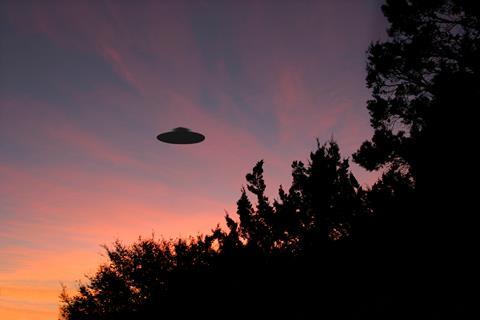
The biblical objection
“The Bible says nothing about ET, so they don’t exist”
This common idea goes that since the Bible is the Church’s source of truth, then it would have said that ET exists if they actually existed. The Bible says no such thing, so they don’t exist.
But why assume God would tell us all of his secrets? Besides, even if he wanted to, why suppose he would use the Bible to do it? It would be a mistake, after all, to think the Bible is an encyclopedia, containing the answers to every question about reality. The Bible teaches theology, not cosmology. If one wanted to learn about quantum field theory, for example, turning to the Bible would be a terrible idea.
What if, instead, God determined that it was better for us to discover some truth through rigorous investigation, as opposed to dumping it all on us in one fell swoop? This assumption has more going for it. Throughout scripture, God’s children are encouraged to ask, seek, and knock – to use wisdom, reason, and discernment (Proverbs 26:4-5; Jeremiah 29:13; Matthew 7:7). If God calls us to search for spiritual truth, why not think he invites us to do the same for scientific truth? It is true that the Bible doesn’t mention ET. So what? It doesn’t mention black holes either. But they’re out there.
The anthropological objection
“ET existence would mean humans are not unique”
Scripture says humanity bears God’s image on the earth as its caretaker (Genesis 1:27; Romans 8:18-21). Humans are thus deeply and uniquely loved by God (Genesis 9:6; John 3:16; James 3:9). Would ET existence undermine our image-bearing vocation and, therefore, our status as God’s beloved children?
God’s unique love for humanity is rooted in his infinite nature. Just because his love is spread across the universe does not mean it will be diluted in the process. As Nick Spencer recently remarked during a debate on science and religion on The Big Conversation, Christians should not equate being valued with being unique. “It’s a bit like a toddler having their parents bring home a newborn,” he said. “For a long time you’ve had your parents’ attention solo in the house and, all of a sudden, there’s this horrible little baby…[But] a toddler is not loved by their parents because they’re by themselves. They’re loved just because they’re loved.” (Watch the conversation in full at thebigconversation.show)
Perhaps, then, ET civilisations have their own vocations, called to display the glories of God in their unique way, according to their own nature. One can only imagine the possibilities in this regard, and that’s the point: ET existence poses no ontological threat to the human vocation precisely because it is a human vocation.
God’s love alone guarantees our place in the universe. In fact, ET existence may not complicate that truth as much as it would complement it. After all, encountering otherness has a way of heightening and humbling one’s self-understanding. It may remind us of an oft-forgotten truth: Being the centre of the universe is not a prerequisite for being uniquely loved.
The soteriological objection
“The gospel doesn’t leave room for ET existence”
Both scripture and tradition agree that God loves everyone (John 3:16). As a result, the offer of redemption is universal in scope (2 Peter 3:9; 1 John 2:2). Would this extend to an ET civilisation? Or since the Son of God became human (John 1:14), would ET therefore be excluded from redemption?
First, why assume that ET’s spiritual condition is sinful? Sinfulness is not a necessary condition for creaturely existence. Just because humans have fallen into sin does not mean other creatures have or will (one thinks of CS Lewis’ The Space Trilogy). Perhaps humanity is unique in this respect. What if, for example, earth was a sinful anomaly and that, elsewhere in the universe, non-human intelligences would be aghast to learn of our rebellious state? To think this is impossible would, perhaps, only reveal the depth of our anthropocentric bias – not to mention hubris.
Second, if they have fallen, it’s possible that redemption would not be extended to them anyway. A large part of the Christian tradition has thought similarly about spiritual beings. So far as we know, no offer has been extended to the angels who rebelled. This isn’t because God is unloving. Perhaps the nature of their decision to rebel was such that it would make an offer of redemption irrelevant.
Most people already believe in a long list of non-human intelligences, from angels to elephants
But let’s suppose ET had fallen and that God did extend an offer of redemption to them. How would he do it? There are several options. For example, God could choose to incarnate among them like he did for humanity. Nowhere in scripture does it deny the possibility, and there seems room within the Christian tradition to accommodate this idea. Thomas Aquinas argued that multiple divine incarnations were possible. This is conceivable, he says, because God has “infinite” power as the creator, and the creation could never limit or contain him. Of course, Aquinas is talking about God assuming multiple human natures, not an ET nature. But logically it’s not a leap to go there. “If this is the case for divine incarnations on Earth,” writes Paul Thigpen in Extraterrestrial Intelligence and the Catholic Faith (TAN Books), “the principle would seem to hold for incarnations on other planets as well”.
Another option is that God would redeem ET without an incarnation. Aquinas didn’t think Christ’s incarnation and passion were, strictly speaking, necessary for redemption – though they were “fitting”. Could it be the case that God would choose a different, but no less effective, way to redeem sinful ET? It’s not unreasonable to think he could.
It’s also possible that the Son of God’s earthly incarnation is sufficient to redeem all fallen creatures – human and ET alike. This is a position considered by CA McIntosh and Tyler McNabb in their paper Houston, Do We Have a Problem? Extraterrestrial Intelligent Life and Christian Belief. Citing the works of Oliver Crisp and Jonathan Rutledge, they present the possibility that Christ’s human incarnation is capable of redeeming ET because, even though ET has “stark differences in physical features” they are “no less human” as they possess rationality like humans. Thigpen thinks this position may assume too much, as ET would not be descendants of Adam and would, therefore, be of a different nature. Given the Church’s teaching that “what is not assumed is not healed”, a fallen ET would likely require a divine incarnation all their own (if that’s how God chose to save them).
My point is not to advocate for any one position, only to highlight avenues for how one might think through the questions. There is room within scripture to accommodate extraterrestrial life. Admittedly, the questions are hermeneutically challenging, but only in the sense of expanding our theological horizons, not violating them.
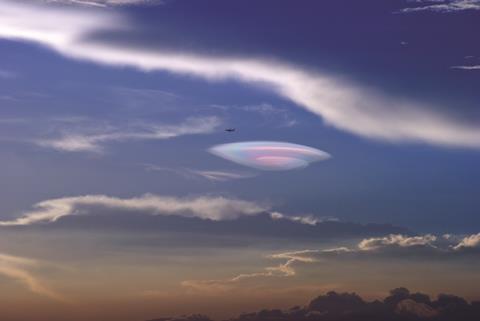
A mysterious universe
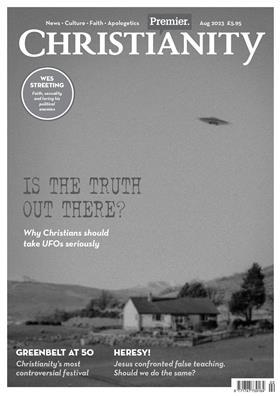
Whatever we think about the topic of UAP, it’s difficult to ignore. The fact that it has gone from fringe rumours to the front page is, in itself, newsworthy. Perhaps some sort of “non-human intelligence” hypothesis is the best explanation for this multifaceted, jeering phenomena. Then again, perhaps not. We know too little. One can never be too careful, after all, when staring into the face of God’s mysterious universe, as portraits of human ignorance inevitably beam back.
All the same, the ET topic is here to stay. And that’s OK. Most people already believe in a long list of non-human intelligences anyway: from angels and demons to elephants and cephalopods. Who knows? Maybe one day that list will be longer still.













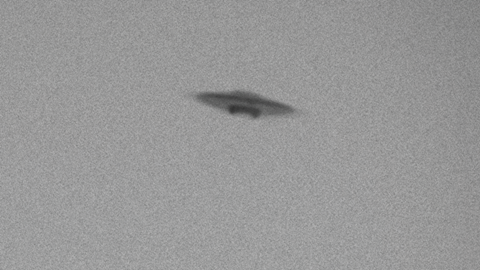

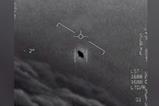





















4 Readers' comments